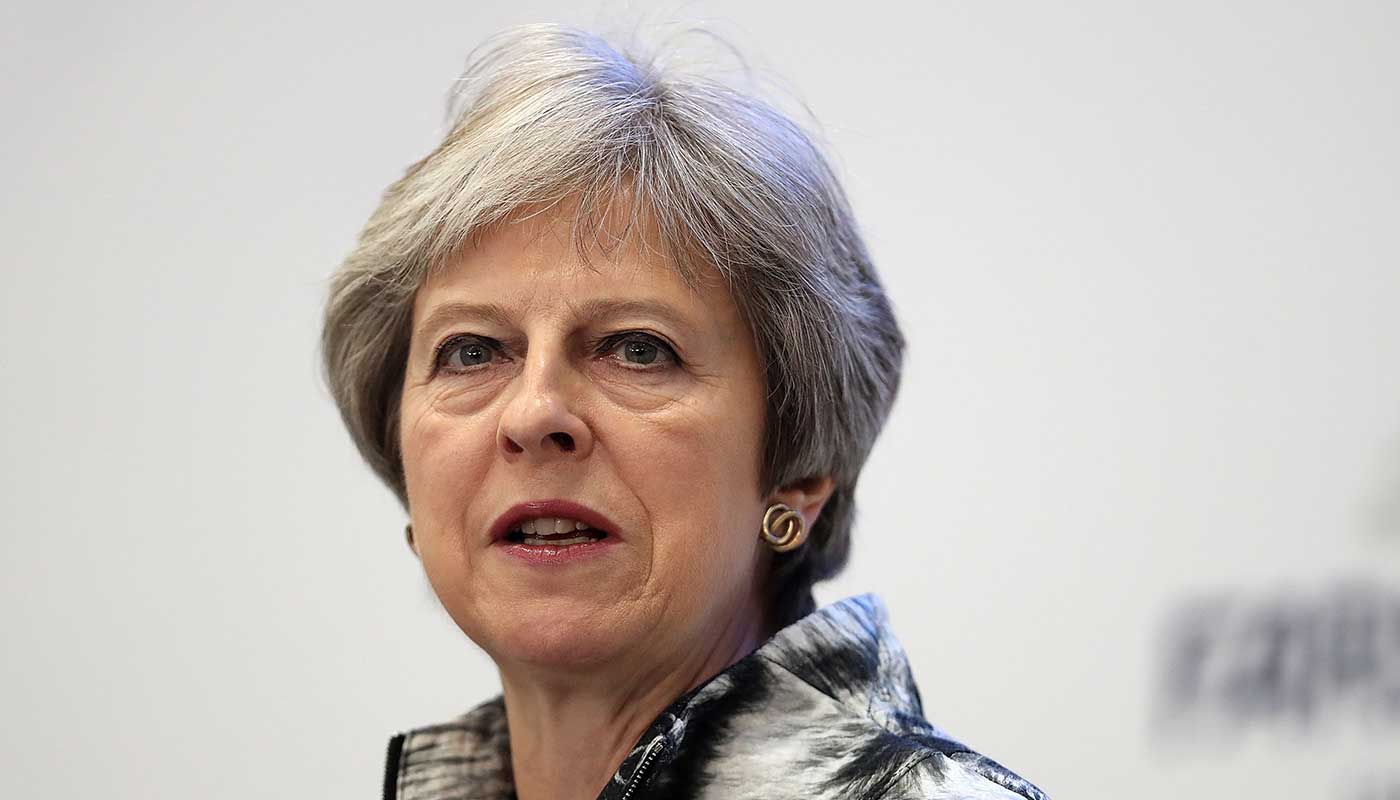Is Theresa May backing an immediate ceasefire in Yemen?
Labour claims her choice of words is more evidence of the government’s support for the Saudi-led bombing campaign

A free daily email with the biggest news stories of the day – and the best features from TheWeek.com
You are now subscribed
Your newsletter sign-up was successful
Theresa May appeared to stop short of calling for an immediate ceasefire in Yemen yesterday despite US demands for a cessation of hostilities in the war-ravaged nation.
When asked during Prime Minister’s Questions if she would press for a UN Security Council resolution calling for an immediate ceasefire, she said the UK would “back the US call for de-escalation”.
May noted that the UK government proposed a UN statement calling on the parties in Yemen to agree steps towards a ceasefire in March and that was still its position.
The Week
Escape your echo chamber. Get the facts behind the news, plus analysis from multiple perspectives.

Sign up for The Week's Free Newsletters
From our morning news briefing to a weekly Good News Newsletter, get the best of The Week delivered directly to your inbox.
From our morning news briefing to a weekly Good News Newsletter, get the best of The Week delivered directly to your inbox.
However, she said she agreed with Middle East Minister Alistair Burt, who earlier this week said: “A nationwide ceasefire will have an effect on the ground only if it is underpinned by a political deal between the conflict parties.”
Her comments came after Washington issued its strongest statement yet on the Yemeni conflict yesterday, calling for a ceasefire and UN-led peace talks within 30 days.
“The time is now for the cessation of hostilities,” US Secretary of State Mike Pompeo said, calling on both sides of the conflict to halt strikes.
His views were echoed by Defence Secretary James Mattis. “We’ve got to move toward a peace effort here,” he told reporters. “And we can’t say we’re going to do it some time in the future. We need to be doing this in the next 30 days.”
A free daily email with the biggest news stories of the day – and the best features from TheWeek.com
Yemen is currently facing the worst humanitarian crisis in the world, devastated by more than three years of brutal civil conflict and famine, but it has become known as the “forgotten war”, the UN said earlier this year.
May’s choice of words did not go down well with the opposition. Labour criticised the government for failing to back the immediate ceasefire calls in their entirety and condemned the UK’s support for the Saudi-led coalition in Yemen, The Independent reports.
A spokesperson for leader Jeremy Corbyn said: “The [US] Defence Secretary and Secretary of State called for a ceasefire within 30 days and it’s clear from Theresa May’s response that she’s not backing that.”
The prime minister’s decision “goes to highlight the role that the British Government has played in supporting the Saudi-led bombing campaign in Yemen and the direct advice to Saudi military by British forces under Government direction”, they added.
The PM’s spokesperson, meanwhile, said that the US position appeared to be in line with the UK’s own “long-standing position” of advocating “de-escalation” of the conflict.
“But he would not say whether ‘de-escalation’ was the same as a ceasefire,” notes the HuffPost.
Foreign Secretary Jeremy Hunt later suggested to BBC Newsnight that the UK was hoping for a more durable solution. “This is different to a ceasefire. Ceasefires have to be monitored and they get broken. This is something that we have been discussing with the US and other people for a while,” he said.
“Essentially this is in a way more profound. This is about a deal where the Saudi coalition would agree to stop bombing civilian areas and the Houthis would agree to stop sending missiles into Saudi Arabia. And there you have the potential for a durable peace that could actually potentially go beyond a ceasefire.”
-
 The EU’s war on fast fashion
The EU’s war on fast fashionIn the Spotlight Bloc launches investigation into Shein over sale of weapons and ‘childlike’ sex dolls, alongside efforts to tax e-commerce giants and combat textile waste
-
 How to Get to Heaven from Belfast: a ‘highly entertaining ride’
How to Get to Heaven from Belfast: a ‘highly entertaining ride’The Week Recommends Mystery-comedy from the creator of Derry Girls should be ‘your new binge-watch’
-
 The 8 best TV shows of the 1960s
The 8 best TV shows of the 1960sThe standout shows of this decade take viewers from outer space to the Wild West
-
 How corrupt is the UK?
How corrupt is the UK?The Explainer Decline in standards ‘risks becoming a defining feature of our political culture’ as Britain falls to lowest ever score on global index
-
 The high street: Britain’s next political battleground?
The high street: Britain’s next political battleground?In the Spotlight Mass closure of shops and influx of organised crime are fuelling voter anger, and offer an opening for Reform UK
-
 ‘If regulators nix the rail merger, supply chain inefficiency will persist’
‘If regulators nix the rail merger, supply chain inefficiency will persist’Instant Opinion Opinion, comment and editorials of the day
-
 Is a Reform-Tory pact becoming more likely?
Is a Reform-Tory pact becoming more likely?Today’s Big Question Nigel Farage’s party is ahead in the polls but still falls well short of a Commons majority, while Conservatives are still losing MPs to Reform
-
 Taking the low road: why the SNP is still standing strong
Taking the low road: why the SNP is still standing strongTalking Point Party is on track for a fifth consecutive victory in May’s Holyrood election, despite controversies and plummeting support
-
 What difference will the 'historic' UK-Germany treaty make?
What difference will the 'historic' UK-Germany treaty make?Today's Big Question Europe's two biggest economies sign first treaty since WWII, underscoring 'triangle alliance' with France amid growing Russian threat and US distance
-
 Is the G7 still relevant?
Is the G7 still relevant?Talking Point Donald Trump's early departure cast a shadow over this week's meeting of the world's major democracies
-
 Angela Rayner: Labour's next leader?
Angela Rayner: Labour's next leader?Today's Big Question A leaked memo has sparked speculation that the deputy PM is positioning herself as the left-of-centre alternative to Keir Starmer